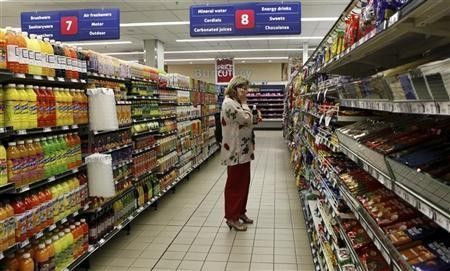S.Africa's factory output slows, government to buffer economy

South Africa's government would act to shield the local economy against the impact of a new global recession, Finance Minister Pravin Gordhan said on Thursday, as data pointed to a slowdown in factory output in the second quarter.
Domestic financial markets have been hammered this week as global risk appetite has evaporated on fears the world economy will slip back into recession, reinforced by a credit rating downgrade for the United States and renewed fears about euro zone banks' exposure to its sovereign debt crisis.
Any fresh downturn would hit Africa's biggest economy.
Gordhan told a post-cabinet briefing on Thursday that he saw a 40 percent chance of a new world recession, and that South Africa was ready to take action to lessen the potential impact on the local economy.
"One of the questions that you might raise is, are we heading for a double-dip? I think our own view at the moment is it's 60-40 against a double-dip," Gordhan said.
"There are other people who are saying it's now 50-50 depending on the decisiveness with which the rest of the world begins to tackle its problems as well, but let's wait and see and we'll keep South Africa informed about what we need to do."
A cabinet statement said that while recent developments posed downside risks to global and domestic growth, "it is too early to predict the depth of the current events on confidence and growth".
But recent data already points to a slowdown in growth in the second quarter, which would undermine the chances of reaching the Treasury's forecast of 3.4 percent growth for 2011.
Output growth in manufacturing, which accounts for about 16 percent of GDP, slowed slightly to 0.9 percent year-on-year in June, capping a lacklustre performance for the second quarter, a report from Statistics South Africa showed.
Output from mining, another key component of GDP, fell 0.7 percent in June compared with the same month a year earlier, Stats SA also said.
The signs of a stalling recovery have prompted financial markets to price in the slight possibility of another interest rate cut, in addition to 6.5 percentage points of reductions in the two years to November 2010.
Until recently, analysts were predicting rates would start rising later this year, after the South African Reserve Bank (SARB) kept the key repo rate at 30-year lows at four consecutive policy meetings.
DATA CONFIRMS WEAKER Q2 GROWTH
"The latest manufacturing and mining production data confirms that economic growth weakened markedly in Q2 2011 ... in line with global trends," Investec economist Kgotso Radira said.
"Against the backdrop of weaker global and domestic growth and increased risk aversion, the SARB will be more reluctant to raise the repurchase rate as it is looking at providing much needed support to the economy."
Analysts said the weak mining and factory data would add to pressure on the rand, which slumped as much as 1 percent against the dollar in volatile Thursday trade as investors continued to fret over the threat of global contagion from debt problems in the United States and Europe.
The rand, which hit a near 25-month low of 7.50 against the dollar on Tuesday, was trading at 7.2744 by 1425 GMT, off a session high of 7.1176.
Gordhan and Reserve Bank Governor Gill Marcus said earlier this week they would act to mitigate any financial stability risks after domestic markets tumbled in a sell-off worsened by a U.S. credit rating downgrade over the weekend.
On Thursday Gordhan said South Africa would take a "growth-friendly fiscal consolidation approach" over the next three years and remained committed to cutting its budget deficit as stated in February.
The Treasury forecast a deficit of 5.3 percent for the 2011/12 fiscal year, narrowing to 4.8 percent by 2012/13.
© Copyright Thomson Reuters {{Year}}. All rights reserved.





















